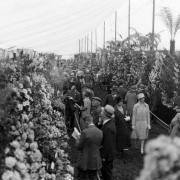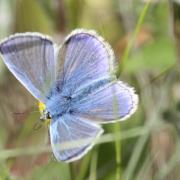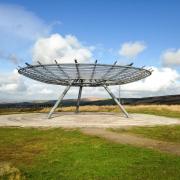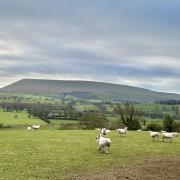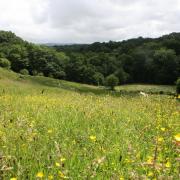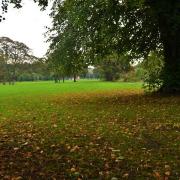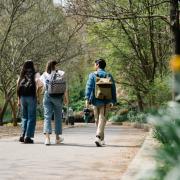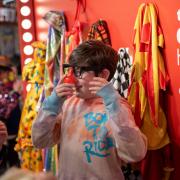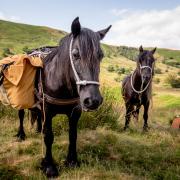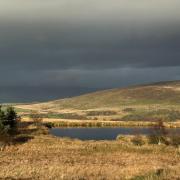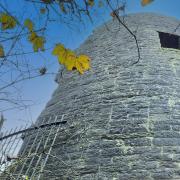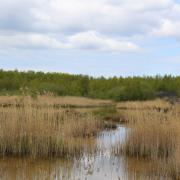One man who brought giants of the rock world to Lancaster has told his story in a new book. David Stocker went to meet him

To stand in the Great Hall at Lancaster University is to stand in a place of ghosts. Ghosts that are invisible to all but those who were young between the years of 1969 and 1985, who were either studying at the University, or who lived locally. And these are no ordinary ghosts. They are the spirits of some of the greatest rock musicians and performers of the era, who, quite incredibly, beat a path to the Bailrigg campus in England’s far north-west.
As broadcaster and writer Andy Kershaw described them, the roster of artists who played there constituted a ‘Who’s Who’ of Rock ‘n’ Roll, among whose number were The Who, Paul McCartney, Dire Straits, Van Morrison, T Rex, Blondie, U2, Black Sabbath, Eric Clapton, Queen, Tina Turner, the Ramones, Duran Duran, Roxy Music, Slade and many more.
And behind this remarkable phenomenon was one special man, in the right place at the right time, an undergraduate-turned-impresario named Barry Lucas. Having recently retired from a second career in schoolteaching, Barry set about writing the definitive memoir of the time, with his ‘Boswell’ – rock fan Paul Tomlinson.
‘When Rock Went to College; Legends Live at Lancaster University 1969-85’ records this remarkable time in those years before stadiums and digitalisation, as seen from the perspective of the man who selected and booked the bands, and satisfied their whims, as might anyone wishing to appease the Gods of Rock.

And so, to begin at the beginning, the year is 1970 and it has been two years since Lancaster University moved onto the Bailrigg Campus. Radio 1 has been broadcasting for three years, and people are buying pop music on vinyl discs. Barry is studying for a degree in English and History. A loosely collegiate structure meant that each of the University’s six colleges were individually responsible for putting on entertainment for students.
While studying, Barry is elected to the voluntary office of social secretary of Lonsdale College. ‘The “happening” music of the time was blues rock, folk rock and the beginnings of heavy metal, and I booked bands like The Groundhogs, Chicken Shack and The Edgar Broughton Band to play for my own college,’ he says.
‘Another social secretary and I realised that if colleges pooled their resources, enough money could be raised to book a bigger act. Three colleges raised £1,000 and The Who were booked to play in the Great Hall. And from this point on there was no turning back.
‘But I was cautious about just following my own musical tastes, and I concentrated on booking an eclectic mix of acts that would appeal to different audiences. Before I had even sat my final exams in 1971, I had booked bands of the stature of Black Sabbath, Free and Pink Floyd. In fairly short order, my voluntary college role was professionalised and before graduating I was offered the job of social manager for the University’s Students’ Union, tasked with covering my wages and generating money for the Union.’

The Great Hall had a capacity of 1350, making it a large venue by UK standards of the time. It had great acoustics and, crucially, it was easily accessed from the M6. ‘The business model for bands then was one where royalties from record and cassette sales were the aim, and the tours around the country – maybe 20 or 30 gigs a year - were essentially loss-leaders for the hoped-for profits to come’ says Barry.
‘It’s worth saying that only about 40 per cent of concert ticket sales came from the University. I had ticket outlets in Barrow, Kendal, Lancaster, Morecambe, Blackpool and Preston. It was very much “Town and Gown” rocking together, albeit on the University’s turf.’
During the early to mid-70s they booked some truly huge bands. ‘But I also booked top-notch acts with minority appeal, performers like Ravi Shankar, Stefan Grappelli, Syd Lawrence and Mike Harding. In the mid-70s Punk came along, with its rejection of rock’s “dinosaurs”.
‘Many of the big acts we had previously booked were migrating to larger purpose-built urban venues, but I simply embraced the cultural change in the music, and went for it. Along with punk, we accommodated pub rock bands, the Stiff Tour, Two-Tone and British reggae acts.
‘The 1980s saw change in the air. External band promoters started to offer the University a percentage of profits, removing a lot of the commercial risk for someone like myself. I was moved to the role of Students’ Union manager and given the job of creating a new off-campus social centre in Lancaster itself, called the Sugar House, where The Eurythmics, Simply Red and the Stone Roses were eventually to play.
‘But restrictions on membership allowing pitifully few locals into the club led to its demise as a performing venue. By the end of 1984 I had quit.’
Rock was synonymous with excess and bad behaviour involving groupies, drink, drugs and trashing hotel rooms. So what did Barry see? ‘The audiences for punk acts could be horrendous, and roadies were often a real pain to deal with. Two acts were responsible for damaging valuable University instruments – a harpsichord and grand piano respectively. But any problematic sex and drugs stuff would probably have happened in hotels like Lancaster’s Royal Kings Arms, or Morecambe’s Midland, where bands stayed.
‘I do recall an unknown Jamaican band on their first UK visit, booked to accompany a disco, who smoked so much marijuana they seemed incapable of playing until after midnight, when much of the audience had left. That was The Wailers, with Bob Marley.’
And any regrets? ‘Only two. First, that I failed to book Count Basie and Ella Fitzgerald when offered them in 1972. And then there’s a regret on behalf of local music lovers. The Rolling Stones were begging to play Lancaster as a warm-up gig for a European tour, but the non-negotiable date they wanted to perform on coincided with the start of Final Exams. Despite my entreaties, the Vice Chancellor was not for turning. Shame, really…’ w
‘When Rock Went to College; Legends Live at Lancaster University 1969-85’ is published by Carnegie Publishing, Lancaster. It is available with 10 per cent discount and free UK P&P from the publishers on 01524 840111, www.carnegiepublishing.com (use code ‘fpp’ and select ‘Free Shipping’, and use CARN10 for discount).




